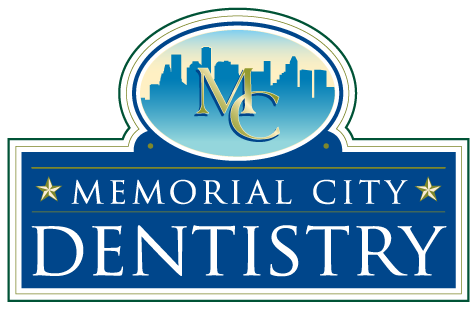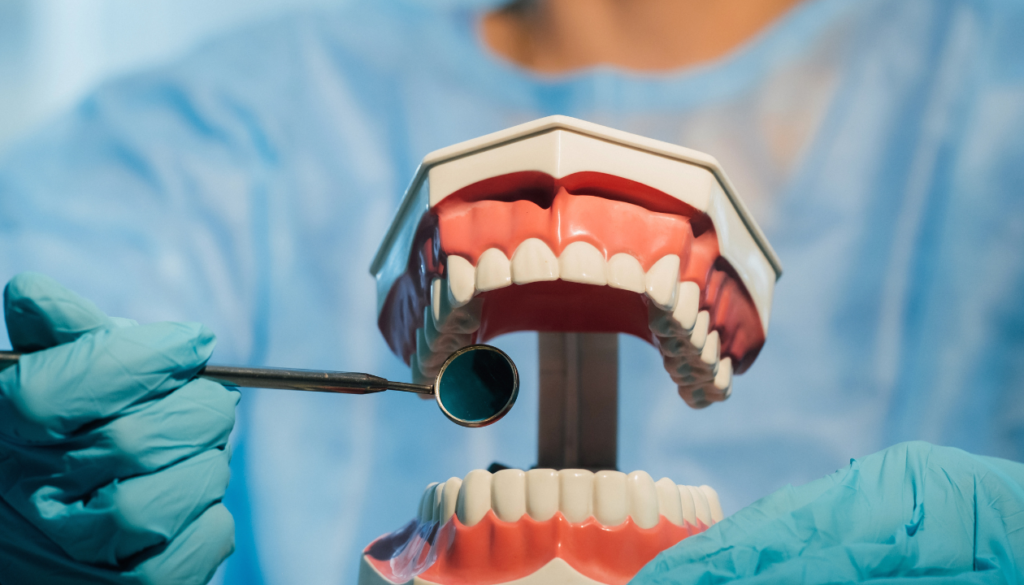Gum disease isn’t just a dental issue; it’s a warning sign that your overall health might be at risk. Many people don’t realize that the condition of your gums can reflect systemic health problems, from heart disease to diabetes.
If you’ve noticed symptoms like swollen gums or persistent bad breath, it’s time to pay attention.
Understanding the connection between gum disease and your overall health can empower you to take action. Fortunately, there are effective dental solutions available to combat gum disease and improve your well-being.
By addressing these issues early, you can protect not just your smile but your health as well.
Overview of Gum Disease
Gum disease, also known as periodontal disease, affects the tissues surrounding teeth. It starts with gingivitis, characterized by swollen gums and bleeding. When ignored, it progresses to periodontitis, which can lead to tooth loss and significant damage to the jawbone.
Indicators of gum disease include:
- Swollen Gums: Red or inflamed gums signal early gum disease.
- Bad Breath: Persistent halitosis often accompanies gum infections.
- Receding Gums: Gums pulling away from teeth can indicate deterioration.
- Loose Teeth: Movement or shifts in teeth suggest advanced disease.
Risk factors for developing gum disease include:
- Poor Oral Hygiene: Inadequate brushing and flossing allow plaque buildup.
- Smoking: Tobacco use significantly raises gum disease risk.
- Genetics: Family history can predispose you to gum issues.
- Hormonal Changes: Pregnancy or menopause can affect gum health.
Addressing gum disease promptly is vital. Professional cleanings, improved oral hygiene, and in some cases, medications or surgical treatments can effectively restore gum health.
Regular dental check-ups help identify gum disease early, promoting better outcomes for your dental and overall health.
The Connection Between Gum Disease and Overall Health
Gum disease significantly impacts overall health, connecting oral issues with systemic conditions. Recognizing this relationship is crucial for effective health management.
Impact on Systemic Conditions
Gum disease can exacerbate systemic conditions like heart disease, diabetes, and respiratory illnesses. Inflammation from periodontal disease enters the bloodstream, potentially causing vascular inflammation and leading to heart issues.
Research shows that individuals with diabetes face a higher risk of gum disease due to impaired blood sugar control, which complicates their condition. Additionally, individuals with chronic respiratory diseases may experience worsened symptoms when dealing with gum disease, as oral bacteria can exacerbate lung conditions.
Addressing gum health promotes better management of these systemic conditions.
Symptoms of Gum Disease
Symptoms of gum disease can indicate broader health concerns. Key indicators include:
- Swollen Gums: Tender, inflamed gums signal gingivitis.
- Persistent Bad Breath: Fetid breath often accompanies gum infections.
- Receding Gums: Gum recession may reveal tooth roots and worsen sensitivity.
- Loose Teeth: Loose teeth suggest advanced periodontal disease.
Noticing these symptoms prompts immediate dental consultation. Early intervention prevents progression and helps maintain overall health.
Causes and Risk Factors
Understanding the causes and risk factors of gum disease is essential for prevention and early intervention. Several influences can significantly increase your likelihood of developing this condition.
Lifestyle Influences
Poor oral hygiene practices greatly contribute to gum disease. Inconsistent brushing and infrequent flossing allow plaque buildup, leading to inflammation.
Smoking acts as a catalyst, impairing blood flow to gums and reducing healing potential. Poor dietary choices, such as high sugar intake, weaken gum health by promoting bacteria growth.
Stress impacts your immune system, making it harder to fight infections, including gum disease.
Genetic Predispositions
Genetic factors play a crucial role in your susceptibility to gum disease. Family history of periodontal disease increases your risk, indicating inherited traits that affect immune response and inflammatory reactions.
Specific genetic markers are linked to aggressive forms of gum disease, suggesting that some individuals may be more prone to severe conditions despite maintaining good oral hygiene. Understanding these predispositions encourages proactive dental care and regular check-ups to monitor gum health.
Prevention Strategies
Preventing gum disease requires consistent efforts in oral care and regular dental oversight. Implementing effective strategies can significantly reduce the risk of developing gum issues and related health concerns.
Maintaining Oral Hygiene
Ensuring optimal oral hygiene involves daily habits that promote gum health.
- Brush Teeth Twice Daily: Use fluoride toothpaste and a soft-bristled toothbrush. Brush for at least two minutes, covering all surfaces.
- Floss Daily: Flossing removes plaque and food particles between teeth, where brushes can’t reach.
- Use Antimicrobial Mouthwash: Rinsing with an antimicrobial mouthwash can help reduce bacteria and plaque buildup.
- Avoid Tobacco Products: Smoking and chewing tobacco contribute to gum disease progression and worsen overall oral health.
- Opt for a Balanced Diet: A diet rich in vitamins and minerals, particularly vitamin C and calcium, supports gum health.
Regular Dental Checkups
Scheduling regular dental checkups plays a crucial role in preventing gum disease.
- Professional Cleanings: Dentists or hygienists can provide thorough cleanings that remove tartar and plaque buildup, which regular brushing can’t eliminate.
- Early Detection of Gum Issues: Regular visits facilitate early identification of gum disease symptoms, allowing for prompt intervention.
- X-Rays and Assessments: Dentists use X-rays to evaluate bone structure and detect issues below the gum line, addressing problems before they escalate.
- Personalized Care Plans: Dentists can customize care plans based on individual risk factors, ensuring tailored recommendations for maintaining gum health.
Treatment Options for Gum Disease
Gum disease treatment varies based on severity, aiming to restore gum health and prevent further complications. You can choose from non-surgical solutions and surgical procedures based on your needs.
Non-Surgical Solutions
Non-surgical solutions effectively address early-stage gum disease and include:
- Scaling and Root Planing: This deep cleaning procedure removes plaque and tartar from above and below the gum line. After scaling, the roots of teeth are smoothed, helping gums heal and reattach.
- Antimicrobial Therapy: Antibiotic treatments, either topical or oral, combat bacteria causing gum infections. Your dentist may prescribe gels or mouth rinses to reduce inflammation and sensitivity.
- Adjunctive Treatments: These can include the use of antiseptic solutions and enzymes to enhance your oral hygiene routine. Your dentist may recommend specific products designed to target gum disease effectively.
- Improved Oral Hygiene Practices: Regular brushing, flossing, and the use of mouthwash make a significant difference in managing gum health. You can work with your dentist to develop a tailored oral care plan that fits individual needs.
Surgical Procedures
If non-surgical treatments aren’t enough, surgical procedures may be necessary, such as:
- Flap Surgery (Pocket Reduction): This procedure involves lifting back the gums to remove tartar and reduce deep gum pockets. The gums are then sutured in place for tighter fit around the teeth.
- Bone Grafting: In cases with significant bone loss, grafting replaces lost tissue using your bone or synthetic material. This surgery supports tooth stability and helps re-establish bone structure.
- Tissue Grafting: If gum recession has occurred, gum tissue can be taken from another area of your mouth and grafted onto the affected site. This restores gum appearance and protects tooth roots.
- Guided Tissue Regeneration: This advanced procedure helps regenerate lost bone and tissue. A special membrane is placed in the gum area to direct healing and encourage the growth of new tissues.
By working closely with your dental professional, you can determine the most suitable treatment for your gum disease and overall health.
Ongoing Maintenance and Care
Ongoing maintenance and care are vital for preventing gum disease and promoting overall health. You can implement specific strategies to maintain gum health and reduce the risk of deterioration.
- Daily Hygiene Practices: Brush your teeth twice daily with fluoride toothpaste, and floss once a day. These actions remove plaque and food particles, effectively preventing gum disease.
- Regular Dental Visits: Schedule professional cleanings at least twice a year. Dentists can identify early signs of gum disease and provide treatments tailored to your needs.
- Nutritional Choices: Consume a balanced diet rich in vitamins C and D, calcium, and antioxidants. Foods such as fruits, vegetables, and whole grains support gum health and bolster your immune system.
- Quit Tobacco Products: Avoid smoking and other tobacco use, as they significantly increase the risk of gum disease. Quitting tobacco aids in improving oral health and overall well-being.
- Manage Stress Levels: Invest time in stress-reducing activities. High stress can negatively impact your immune system, making you more susceptible to gum issues.
- Stay Hydrated: Drink plenty of water throughout the day to help maintain saliva production. Saliva is essential for neutralizing acids and washing away food particles.
- Use Antimicrobial Mouthwash: Incorporate an antimicrobial mouthwash into your routine. This product helps reduce plaque buildup and fight bacteria that can lead to gum problems.
Each of these strategies plays a crucial role in maintaining gum health. Adopting and sticking to these practices helps mitigate the effects of gum disease, supporting both your dental and overall health.
Conclusion
Taking care of your gums is essential for your overall health. By recognizing the signs of gum disease early and seeking professional help, you can protect not just your smile but your well-being too.
Remember that good oral hygiene habits and regular dental visits are your first line of defense against gum issues.
Implementing simple changes like brushing and flossing daily can make a significant difference. Staying informed about the connection between gum health and systemic conditions empowers you to take proactive steps.
Prioritize your dental care and enjoy the benefits of a healthy mouth and body. Your gums deserve the same attention as the rest of your health.
Frequently Asked Questions
Can gum disease lead to other health issues?
Yes, gum disease can indicate systemic health problems. Conditions like heart disease and diabetes can be exacerbated by gum disease, as inflammation from the gums can enter the bloodstream, potentially affecting other organs.
What are the initial signs of gum disease?
The first signs of gum disease include swollen gums, bleeding when brushing, bad breath, and gum recession. These symptoms often indicate gingivitis, which can progress to more severe forms of gum disease if not addressed.
How can I prevent gum disease?
To prevent gum disease, maintain good oral hygiene by brushing twice daily, flossing regularly, using antimicrobial mouthwash, and scheduling routine dental checkups. A balanced diet and avoiding tobacco also play a crucial role.
What treatments are available for gum disease?
Treatment for gum disease includes non-surgical options like scaling and root planing, as well as antimicrobial therapies. For advanced cases, surgical options like flap surgery or grafting procedures may be required.
How does smoking affect gum health?
Smoking significantly increases the risk of gum disease by impairing blood flow to the gums, reducing healing ability. It also contributes to plaque buildup, leading to more severe periodontal issues. Quitting smoking can greatly improve gum health.
Protect Your Health with Memorial City Dentistry—Act Now!
Gum disease affects more than just your smile—it impacts your entire well-being. At Memorial City Dentistry, we’re dedicated to safeguarding your health with personalized gum disease treatment plans.
Early intervention is key to preventing serious health complications, so don’t delay. Schedule your appointment today and take the first step toward a healthier, brighter future. Your oral health is our priority!


